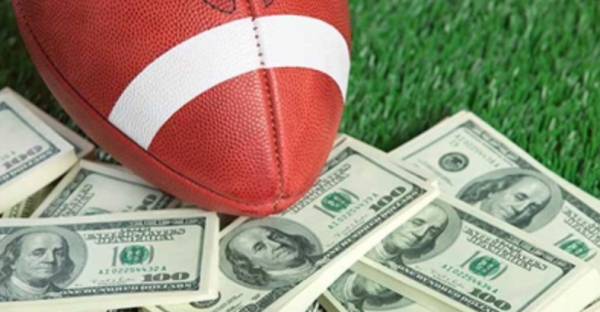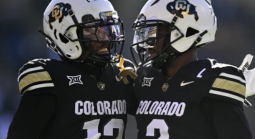The Impact on Sportsbooks With Big 10, PAC 12 Cancelling Fall Season
With the Big 10 and PAC 12 officially cancelling their college football slate this fall, one has to wonder how this will impact the sportsbooks bottom line. Of course, attempts to play in the spring would likely more than make up for any losses down the road.
|
*Now Celebrating 22 Years in Business |
Short term, it's bad. Then again, sportsbooks and sports handicappers are optimistic that more SEC, ACC and Big 12 games will be nationally televised and, as such, attract even more bettors.
To give you an idea it's less about the conferences so much as the teams. The big 10-15 teams prob represent 80% of sportsbook turnover but even then a normal game involving them would only generally be 30-40% interest of a normal NFL game. Bowls etc different.
— Stu D (@redarmi123) August 10, 2020
It's possible - even probable - that some programs will play in the spring.
There is little question that would be huge for the books.
Few, if any, of us were around during the pandemic of 1918. But we are beginning to draw a few parallels. Surprise! There were anti-maskers and, yes, schools had to make tough decisions pertaining to the cancellation of their fall football season. Eventually it would turn into a mishmash of differing courses of action.
The Pittsburgh Panthers, coached by the great Pop Warner, went from not playing at all to piecing together one of their best ever seasons.
"Our original schedule for the 1918 season was canceled in late September after the initial impact of the flu epidemic had set in," Warner said at the time, quotes that resurfaced in an autobiography published in 1993, some four decades after his death. "However, by late October, the problem seemed to be under control and health officials were no longer concerned about the gathering of large crowds."
CollegeFootball ― The Rose Bowl in April? How 1918 can teach college football to embrace the unexpected https://t.co/KkZF1hqLJc https://t.co/0I4IIflkwI pic.twitter.com/QYQihtSPbS
— Bitcoin Sportsbook (@SportsbookBTC) August 12, 2020
ESPN's Ivan Maisel wrote an epic piece on how college football responded to the 1918 pandemic. Some cobbled together full schedules; some played partial schedules; and some stayed home.
From ESPN:
In September 1918, the influenza pandemic began its second sweep across America, finding breeding ground in crowded military camps filled with soldiers training for the Great War. Fort Devens, 35 miles northwest of Boston, held 45,000 men, 10,000 above capacity. The flu struck the fort with ferocity -- Fort Devens reported 66 deaths on Sept. 22; 63 on the following day.
In September 1918, the influenza pandemic began its second sweep across America, finding breeding ground in crowded military camps filled with soldiers training for the Great War. Fort Devens, 35 miles northwest of Boston, held 45,000 men, 10,000 above capacity. The flu struck the fort with ferocity -- Fort Devens reported 66 deaths on Sept. 22; 63 on the following day.
A century ago, schools responded with in-time solutions. Some cobbled together full schedules; some played partial schedules; and some stayed home. The University of Texas shut down for a month and canceled its rivalry game against Oklahoma. As John Maher and Kirk Bohls describe in their history of Longhorns football, Texas arranged two games against Radio School and one against Camp Mabry Auto Mechanics, both military installations in the Austin area, and rescheduled its SMU game for late November. All most Texas fans know is that the 1918 Longhorns went 9-0. Those who look closer will see that, a few days after Texas closed its season with a victory against Texas A&M, the flu returned to campus and took the lives of 200 people, including 17-year-old guard Joe Spence.
Kentucky closed its campus on Oct. 7, two days after the Wildcats opened their 1918 season with a 24-7 victory at Indiana. The campus armory became a hospital; the flu sickened 400 on campus, with seven people dying. Kentucky managed to play two more road games, both in November, and finished the season 2-1.
Missouri closed its campus for three weeks in 1918. A total of 1,020 students, about 7% of the area population, contracted the flu. The football team practiced some 250 hours. The Tigers played several intrasquad games. Those would be the only games they played.
To get some idea of the mindset of bookmakers desiring spring football, at least one got excited when it was only the Ivy League proposing such a scenario.
Screw the AAF and XFL.
— Dave Mason (@DaveMasonBOL) July 8, 2020
Ivy League Spring Football will get better action than both combined.
LFG (5-6 months from now)!!!
- Aaron Goldstein, Gambling911.com















